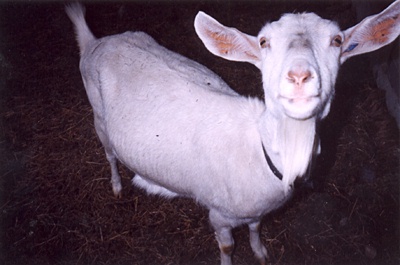All Nonfiction
- Bullying
- Books
- Academic
- Author Interviews
- Celebrity interviews
- College Articles
- College Essays
- Educator of the Year
- Heroes
- Interviews
- Memoir
- Personal Experience
- Sports
- Travel & Culture
All Opinions
- Bullying
- Current Events / Politics
- Discrimination
- Drugs / Alcohol / Smoking
- Entertainment / Celebrities
- Environment
- Love / Relationships
- Movies / Music / TV
- Pop Culture / Trends
- School / College
- Social Issues / Civics
- Spirituality / Religion
- Sports / Hobbies
All Hot Topics
- Bullying
- Community Service
- Environment
- Health
- Letters to the Editor
- Pride & Prejudice
- What Matters
- Back
Summer Guide
- Program Links
- Program Reviews
- Back
College Guide
- College Links
- College Reviews
- College Essays
- College Articles
- Back
Animals and Ethics
Humans are very fickle about animals and their roles in our ethical community. We are enraged when we hear of puppy mills and animal testing, thinking that, “Surely these animals deserve moral rights!” And yet, when we hear that factory farms are much worse, we immediately dismiss it. Or, perhaps we do not openly dismiss it, but we halfheartedly agree, saying “That’s terrible…” but we do not pursue the matter. Inwardly, we rationalize about our misdeeds with the thought that these animals are used for food, and therefore it is justified. I do not. I believe that the harm that we bring onto animals for testing purposes, for food, and for entertainment should be discontinued, or at the very least be radically rethought.
We will find our society damaged if we do not stop the immorality of animal abuse for human purposes. Much of our human society is against this cruelty, even if they do not openly proclaim it. We must “give equal weight in our moral deliberations to the like interests of all those affected by our actions,” says Peter Singer, a professor of bioethics at Princeton University. The people who kill animals are themselves at great risk. Peter Carruthers, Professor of Philosophy at Oxford, put it this way: “Such acts are wrong because they are cruel. They betray an indifference to suffering that may manifest itself…with that person’s dealings with other rational agents.” Those “rational agents” are us, their own kind.
Many say that animal testing and raising animals for food is justifiable, because it is for the greater good of our race. However, let us take this into consideration: when we test animals is it really for the greater good? Are cosmetics actually worth the suffering they cause to the animals that we test them on? Can we truly find the cures of human diseases through animals? If we think that the profits clearly prevail over the damages, then perhaps we should take into account using orphaned infants who are cognitively disabled instead of animals. If we think that it is morally repulsive when people are used, but morally harmless when animals are used, then we are guilty of speciesism. It could be justifiable for animals to be raised for food: but to be brought up in such a miserable way, and to then be cruelly put out of their misery, outweighs the luxury of tasteful food. We might be distressed about our lack of meat, but lifetimes of pain and suffering would be halted.
As we torture these living things in the name of humanity, we must realize that our own species developed from creatures such as them, at first barely self-conscious and weak. This makes the fight for animals the fight for humanity.
“Our duties towards animals are merely indirect duties towards humanity. Animal nature has analogies to human nature, and by doing our duties to animals in respect of manifestations of human nature, we indirectly do our duty to humanity…. We can judge the heart of a man by his treatment of animals.” -Immanuel Kant
It all comes down to our ethical values. We must rethink our moral obligations to the animals raised for food and for testing; if we ignore this moral crisis, then we are no better than the people who use them. If we side with them, we either display psychopathic qualities, or speciesism. Neither are good prospects. We must consider this when we make our decisions about animals and our views about them morally. We must find that we have the choice to make our decisions as rational humans, and exercise it to help our lesser brethren.

Similar Articles
JOIN THE DISCUSSION
This article has 0 comments.
